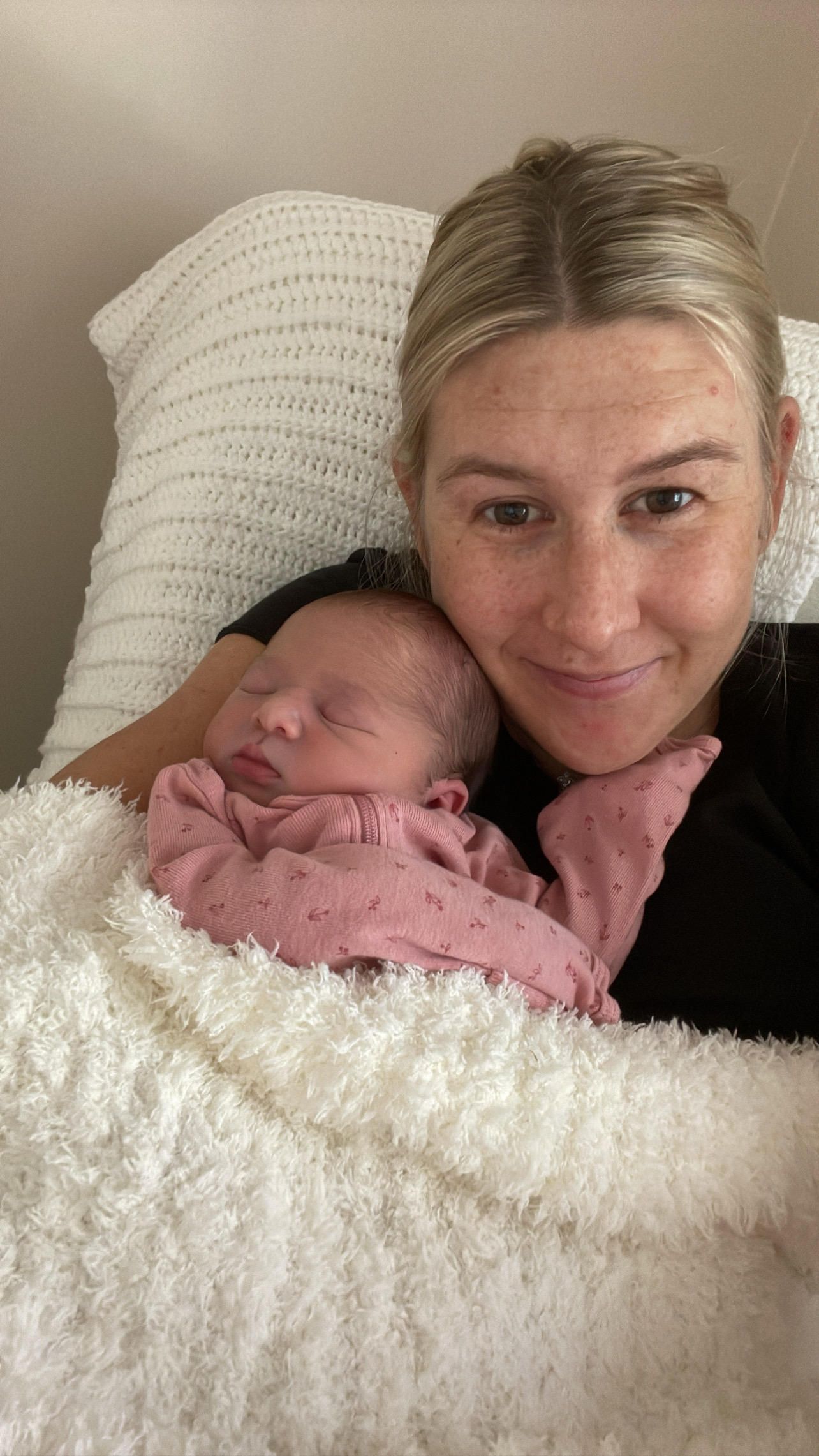Welcoming a new little one is such a special journey, but let’s talk about the real deal—those post-baby feelings. Even as a therapist who’s usually on top of emotions, I’ve shed tears every day since my baby arrived. It’s okay if the joy isn’t constant; lots of moms go through the “baby blues” phase. If you’re feeling this, just know you’re not alone. Be extra kind to yourself during this time, and it’ll make navigating this tiring phase a bit easier.
What Are Postpartum Baby Blues?
Postpartum baby blues refer to a transient and mild form of mood disturbance that many new mothers experience within the first two weeks after giving birth. These feelings are generally considered a normal part of the postpartum adjustment and are different from more severe conditions like postpartum depression.
Common Symptoms of Postpartum Baby Blues:
- Mood Swings: You may find yourself experiencing a range of emotions, from elation to sadness, within a short period.
- Irritability: Small things that wouldn’t typically bother you may become sources of frustration.
- Tearfulness: Crying spells without an obvious cause can be a common symptom.
- Fatigue: The physical and emotional demands of caring for a newborn can contribute to increased fatigue.
- Anxiety: Feelings of worry or anxiety about your ability to care for your baby may arise.
Managing Postpartum Baby Blues:
Acceptance and Understanding
Acknowledge that experiencing postpartum baby blues is a common and temporary part of the postpartum period. Understand that your emotions may fluctuate, and it’s okay to seek support.
Rest and Self-Care
Prioritize rest and self-care. Allow yourself to rest when your baby sleeps, and ask for help from friends or family to manage household tasks.
Open Communication
Communicate openly with your partner and support system about your emotions. Sharing your feelings can help alleviate the sense of isolation.
Realistic Expectations
Set realistic expectations for yourself. Understand that adapting to the demands of motherhood takes time, and it’s okay not to have everything figured out immediately.
Balanced Meals
Prioritize getting in balanced meals with all of the major macronutrients. Proper nutrition can positively impact both your physical and emotional well-being.
Gentle Exercise
Engage in gentle exercises, such as postpartum yoga or short walks. Physical activity can contribute to improved mood and energy levels.
Connect with Other Mamas
Joining support groups or connecting with other moms who may be experiencing similar emotions can provide a sense of community and understanding.
Ask for Help
Don’t hesitate to ask for help when needed. Whether it’s assistance with household chores or someone to talk to, reaching out can make a significant difference.
Professional Support
If your symptoms persist or become more severe, consider seeking professional support. A healthcare provider or mental health professional can offer guidance and support tailored to your individual needs.
Celebrate Small Victories
Celebrate small victories and moments of joy. Whether it’s a successful breastfeeding session or a few hours of uninterrupted sleep, recognizing positive moments can uplift your spirits.
When to Seek Professional Help
While postpartum baby blues are generally temporary, it’s crucial to recognize when your symptoms may indicate a more serious condition such as postpartum depression. If you experience any of the following, it’s advisable to seek professional help:
- Intense and Prolonged Symptoms: If your symptoms are severe, persistent, or interfere significantly with your daily life.
- Difficulty Bonding with Your Baby: If you find it challenging to form a bond or connect emotionally with your baby.
- Thoughts of Self-Harm or Harm to the Baby: If you experience thoughts of self-harm or harm to your baby, seek help immediately.
Advice From Other Moms
The other day I posted on my Instagram the mantras I’ve been using that have helped me during this time, and I received amazing reminders from other fellow mamas:

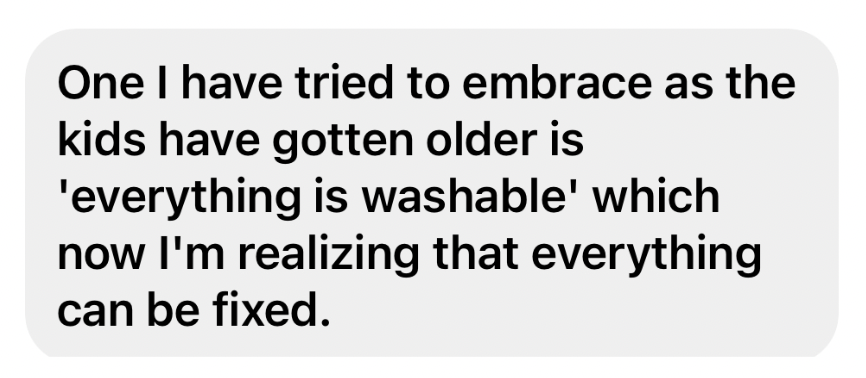



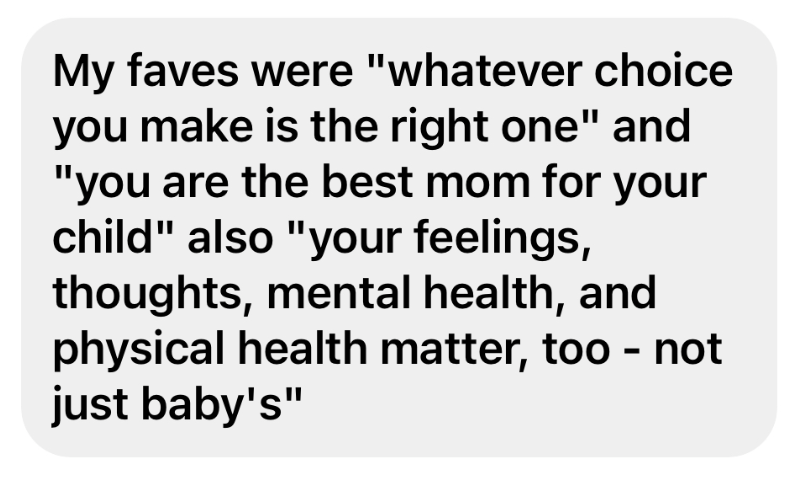
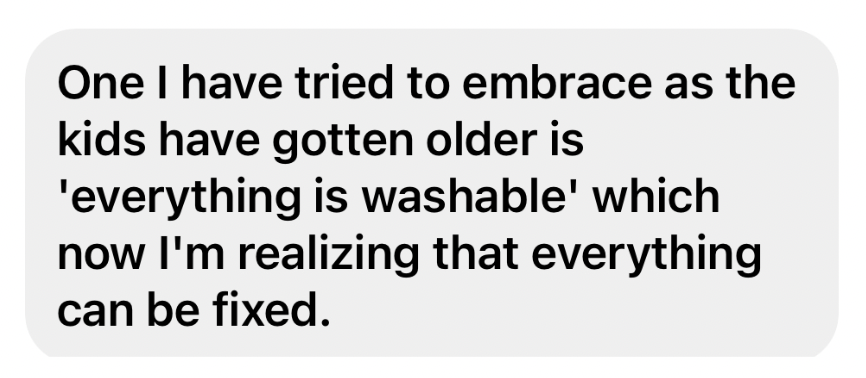
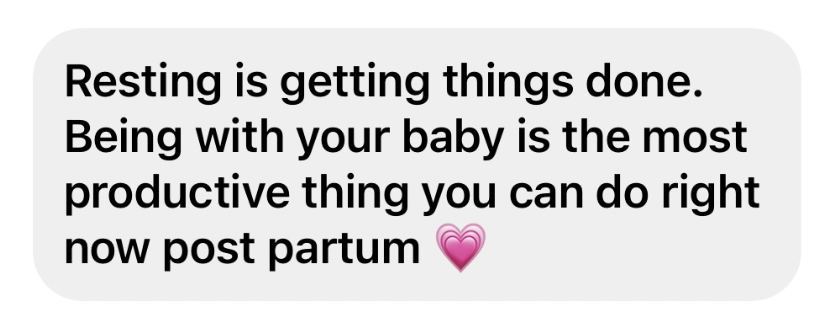



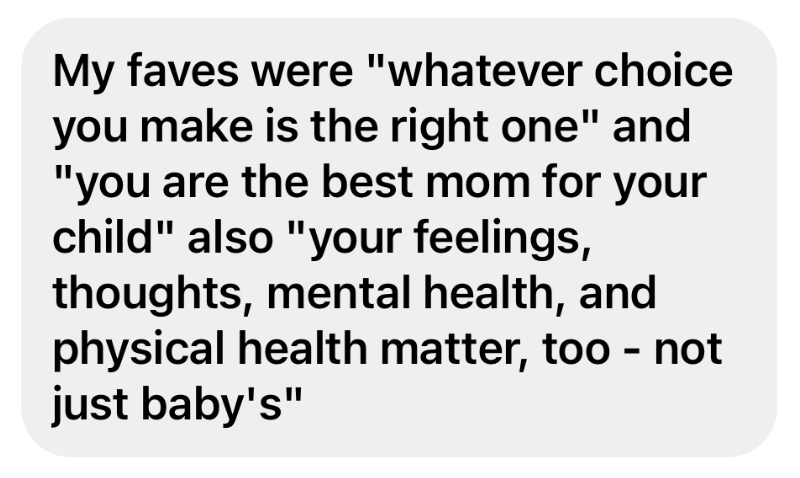

Experiencing postpartum baby blues is a common and temporary aspect of adjusting to motherhood. By acknowledging and understanding these emotions, practicing self-care, seeking support, and staying connected with others, you can navigate this period with resilience and grace. Remember that every mother’s journey is unique, and seeking professional help is a sign of strength, not weakness. You are not alone, and with the right support, you can emerge from the postpartum period with a deeper understanding of yourself and a strong connection with your new baby.
Keep Reading
Harnessing the Power of Mantras: Transformative Words for Positive Living
Navigating the First Month: A Candid Postpartum Reflection
3 Journal Prompts that Helped Me Heal My Relationship with Food
Ryann Nicole
Licensed Therapist, Certified Nutritionist, and Virtual Wellness Coach
Ryann is a licensed therapist and virtual wellness coach who has assisted individuals worldwide in establishing a healthier relationship with food and their bodies.
Are You Ready to Heal Your Relationship With Food?
I understand—it can be overwhelming to figure out where to begin. Let's simplify things and have you start right here:
Why Am I Overeating?
First Steps To Stop Binge Eating
The Food Freedom Lab Podcast
FREE QUIZ
FREE GUIDE
Podcast
the food freedom lab podcast
